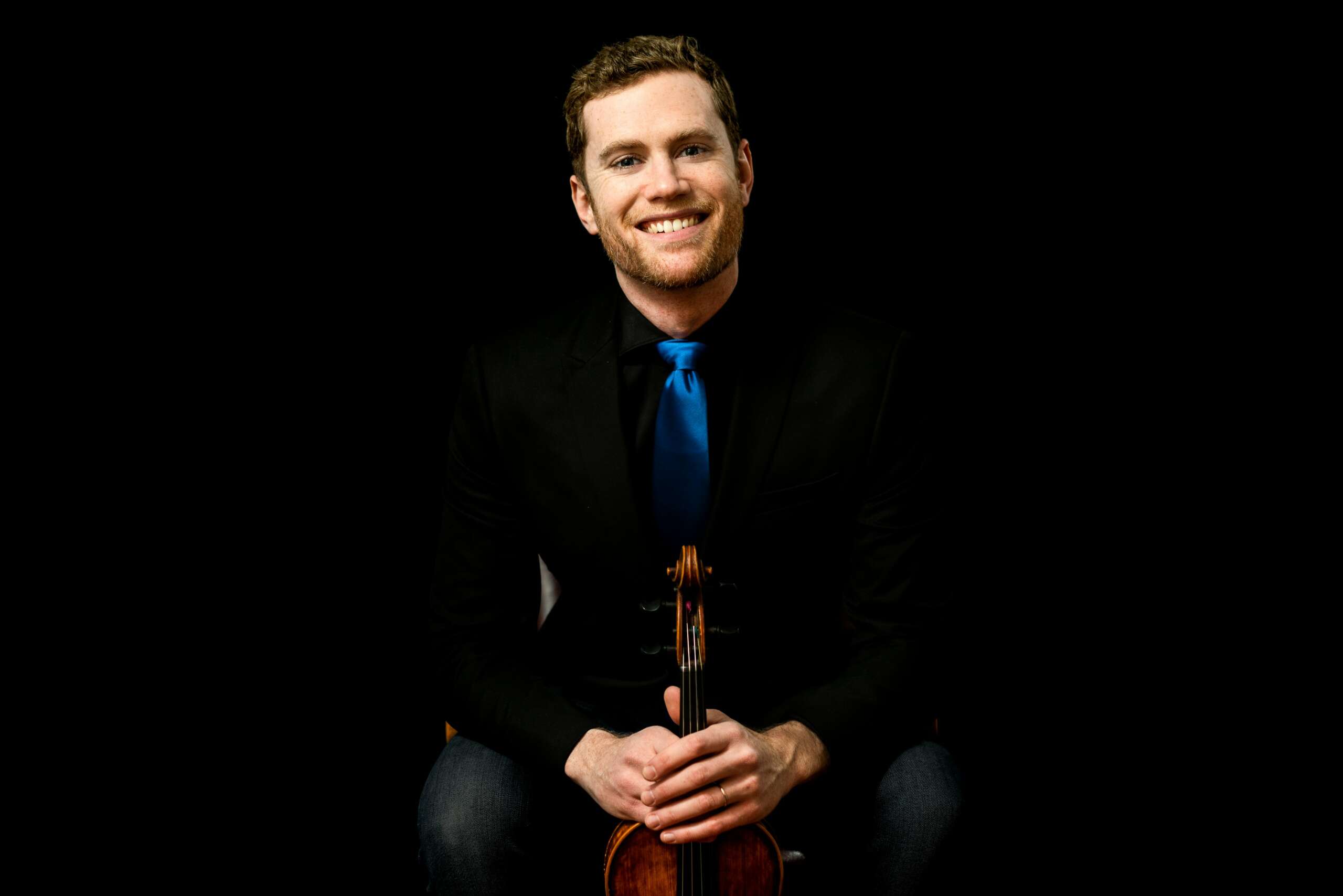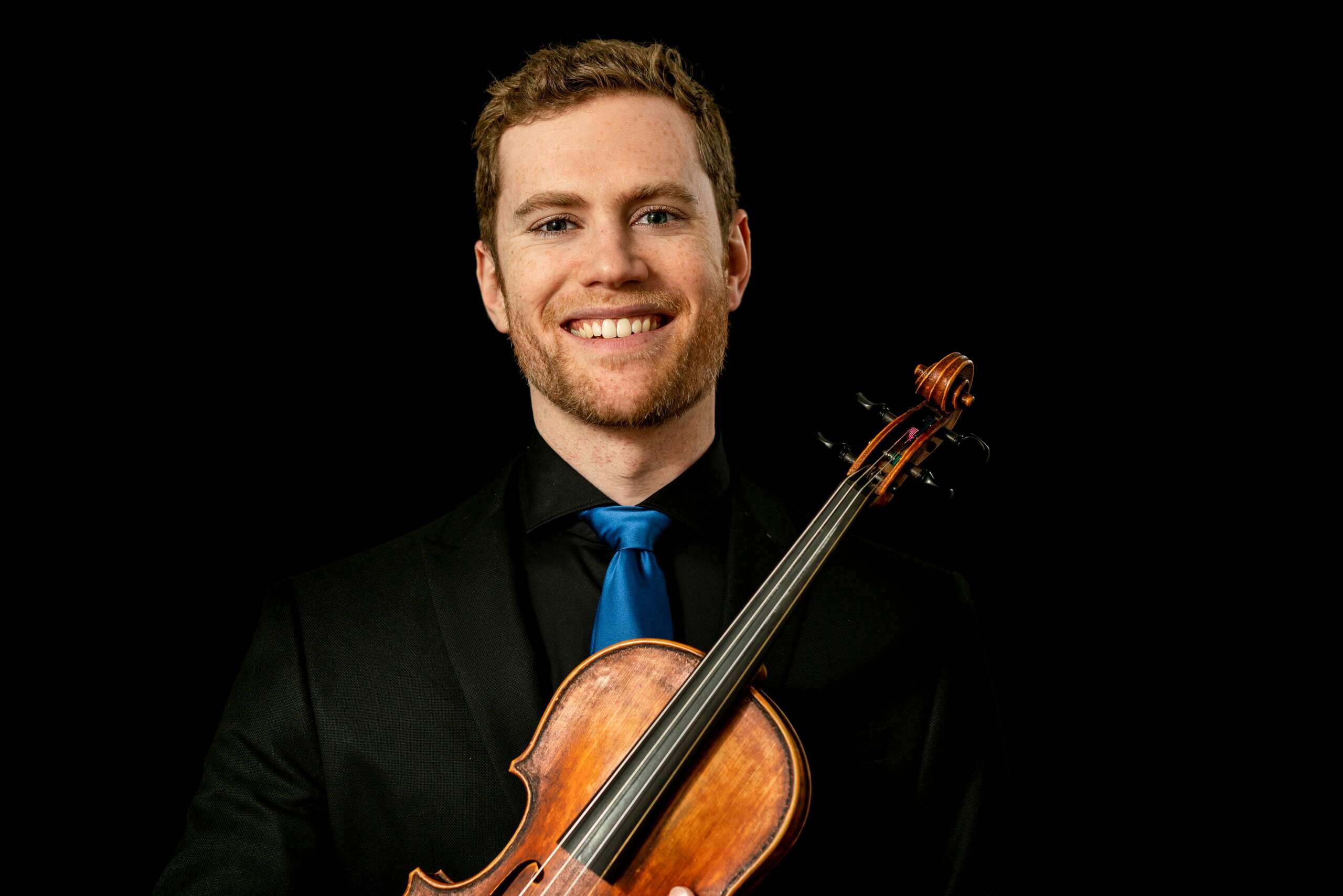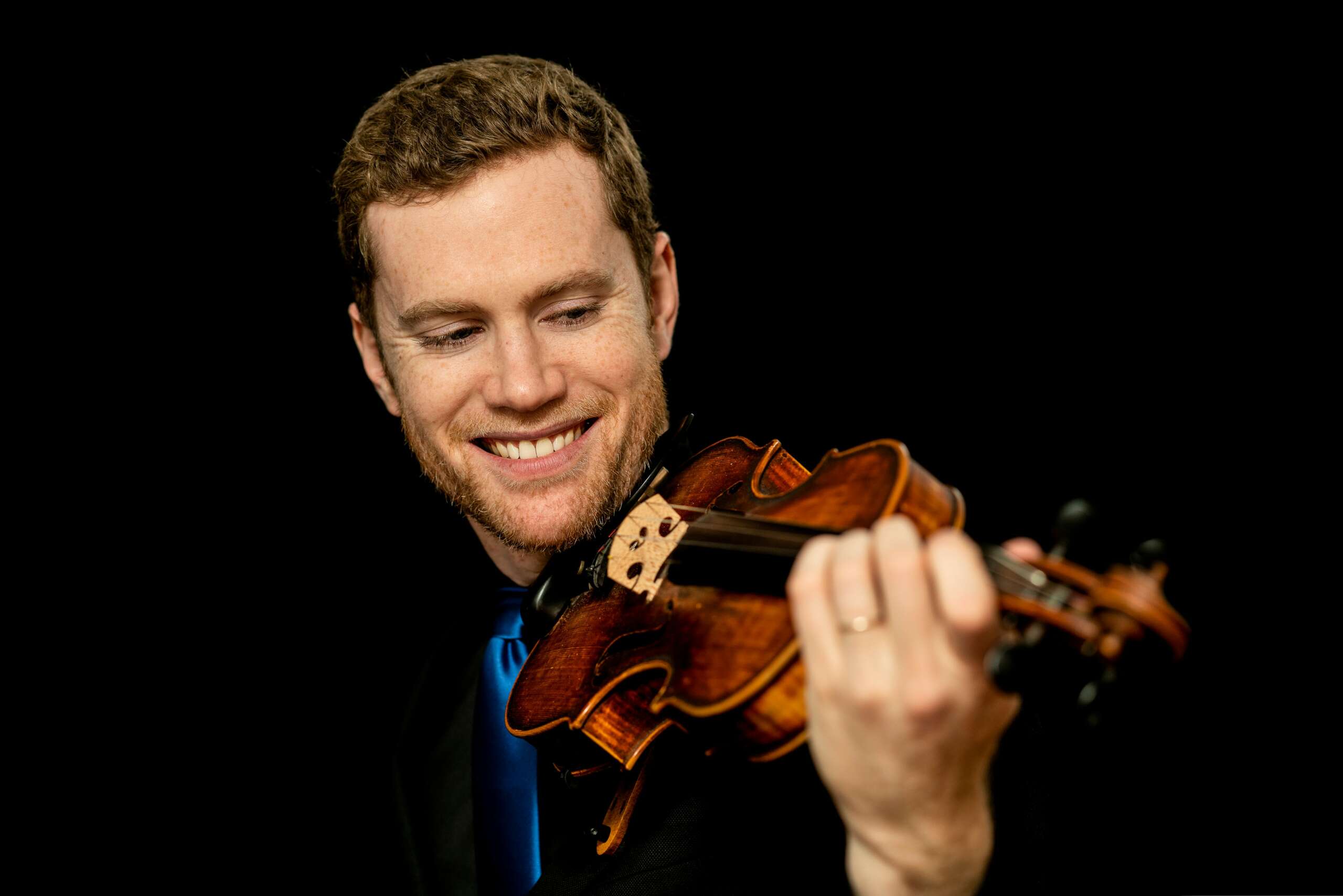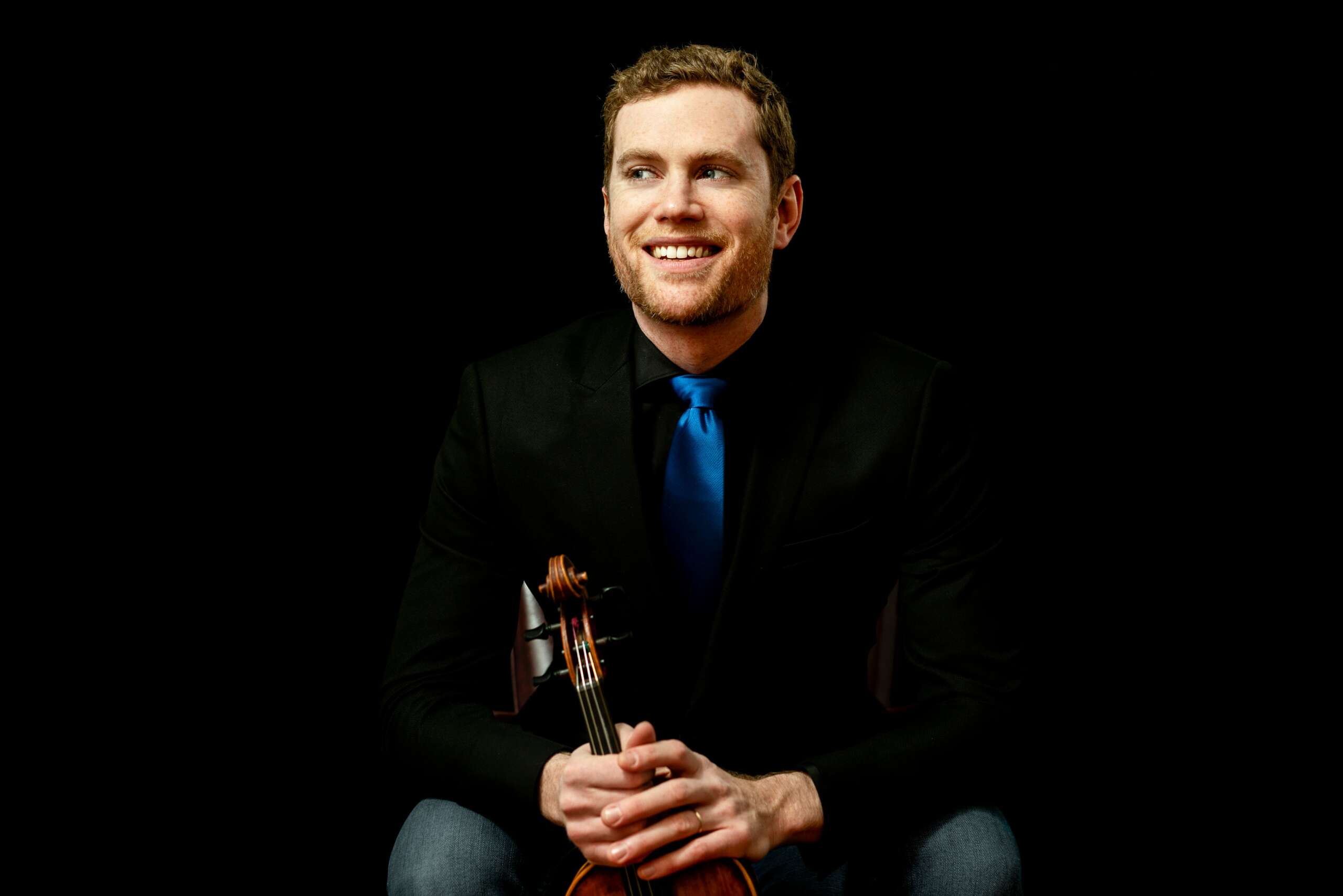We were lucky to catch up with Andrew Finn Magill recently and have shared our conversation below.
Alright, Andrew Finn thanks for taking the time to share your stories and insights with us today. Have you been able to earn a full-time living from your creative work? If so, can you walk us through your journey and how you made it happen? Was it like that from day one? If not, what were some of the major steps and milestones and do you think you could have sped up the process somehow knowing what you know now?
I have played music for most of my life but didn’t decide to become a full-time musician until I was in my late twenties. The turning point was when I moved back to the United States with my wife (who is Brazilian) from Rio de Janeiro. One of the main pull factors was to make a living playing music, something very challenging for me in Brazil and something I had historically been unable to do really in any country I had lived in. Of course, my failures to fully support myself through art were not a reflection of the viability of a career in music (no matter how difficult). The biggest issue was my failure to believe that I was truly capable of this.
When I first decided to transition full time to music, pretty soon I realized the primacy of one thing and one thing only: human relationships. I was actually always aware of how important this is but two things become crystal clear when I actually hit the ground running: 1.) my unique fortune of being born into a family of musicians whose social network was par none for the kind of music I wanted to play and 2.) the importance of leaning on my existing network to get the ball rolling (finding gigs, finding other musicians to work with, finding home-stays on the road, etc).
Because this was so apparent so early, it’s been a cornerstone of my business model ever since. Over the last eight years I’ve done my best to cultivate as many relationships as I can. Sometimes it means I spread myself too thin but I have been emboldened with an initiative that I didn’t have before.


Great, appreciate you sharing that with us. Before we ask you to share more of your insights, can you take a moment to introduce yourself and how you got to where you are today to our readers.
I’m a fiddler/violinist and I really don’t like to identify as one over the other. I have spent most of my life playing the violin/fiddle (take your pick) and it has been the most rewarding journey I’ve ever set out on. It’s an immensely challenging instrument to play and also the thing I feel most comfortable doing.
I grew up around lots of musicians. My parents are both musicians and between the two of them, I was introduced to hundreds of musicians in their wider network. Seeing such world-class talent from an early age and being born with a perfectionism that has been my devil and my angel my whole life, are the two things that set me on an obsessive journey to learn as much as I possibly could about the violin at an early age.
My father started The Swannanoa Gathering summer music program at Warren Wilson College in Asheville, NC so for most of my life I have had access to some of the finest folk musicians in the world. This laid the groundwork really for everything that was to come: my social network, countless epiphanies about music, future bandmates, future colleagues, and the small but mighty trans-national community of enthusiastic folk music lovers who would later be critical in organizing concerts, providing home stays and making business connections.
I think I have always had a sort of dual identity as a musician. On the one hand I love bearing tradition and sharing the music of previous generations who have so inspired me. On the other hand, I have always loved composition and the idea of creating something new… perhaps something that isn’t even classifiable in one tradition. These two pursuits have led me many places both creatively and geographically.
Perhaps the culmination of these two parts to my musicianship is the album I composed called The Polaris Project. The original music on this album is based on the traditions I most deeply cherish (traditional Irish music, Malawian music, Brazilian choro and the great American jazz tradition). It’s gratifying to have it out in the world because I think it most captures the musician that I am which was long a personal goal of mine. This work represents five years’ worth of compositions but really a lifetime of studying the various traditions above. It is very much my life condensed into an album.


In your view, what can society to do to best support artists, creatives and a thriving creative ecosystem?
I think the number one society can do is to start taking artists seriously as professionals. On nearly every tour I do I have to justify my career in some way to someone. People seem incredulous that I can do this for a living and most of the time it’s pure admiration that I have been able to fly in the face of a system which clearly does not value artists as much as say lawyers, doctors or the other handful of professions I was told I had to choose from in grade school. More often than I’d like however, this incredulity is imbued with an assumption that to be an artist I must be starving and that my career isn’t as serious as my friends in banking, real estate, or pretty much any other profession.
It’s frustrating to see people so resistant to accepting artists as professional peers and I think changing the narrative could do wonders on every level. By simply rephrasing how we talk about artists we can open up their opportunities and ultimately ensure they are paid more fairly.
One thing that I’ve witnessed many times in my life in other fields is the power of words to change culture. By simply using different nomenclature or reframing a conversation we begin to see others in a different light. We begin to empower others. History is full of examples but in my own short life, I’ve witnessed dozens of moments of empowerment simply by shifting the narrative about a given group, person, or idea. I think it’s high time we do the same with artists, specifically with musicians. We should stop being shocked when seeing price tags on paintings and hearing of musicians who bought their own houses. If anything, shifting the narrative gives us artists a fighting chance.
Are there any resources you wish you knew about earlier in your creative journey?
The music business should really be called “the business of music.” The biggest resource(s) I wish I had earlier in my creative journey is some sort of business education or business guidance that would impress upon to me the same importance of practicing business as practicing music. It’s easier as us creatives to just want to compose and play music all the time. That was me at least. Eventually however I reached a threshold in which I was forced to learn about business if I was going to making a living doing this.
Even after almost ten years of being a full-time musician I feel like I am still playing “catch-up” at times when it comes to certain business knowledge. Because I think about this a lot, I feel like I’ve been able to overcome whatever lack of business education in my youth and be modestly successful however I lament that this is something not more widespread in our education system. In all of my years of school I never learned about credit, responsible debt management, making budgets, finding funding and doing my taxes. Of course these are all essential skills to have no matter what your profession is.
For some reason in music however there is an even more dramatic knowledge gap in this stuff and it doesn’t help that the world of royalties, copyright and entertainment law is overwhelmingly complicated.
Contact Info:
- Website: https://andrewfinnmagill.com/
- Instagram: https://www.instagram.com/andrewfinnmagillmusic/
- Facebook: https://www.facebook.com/andrewfinnmagill
- Linkedin: https://www.linkedin.com/in/andrew-finn-magill-89b9112b/
- Youtube: https://www.youtube.com/c/AndrewFinnMagillMusic
Image Credits
Anna Colliton


